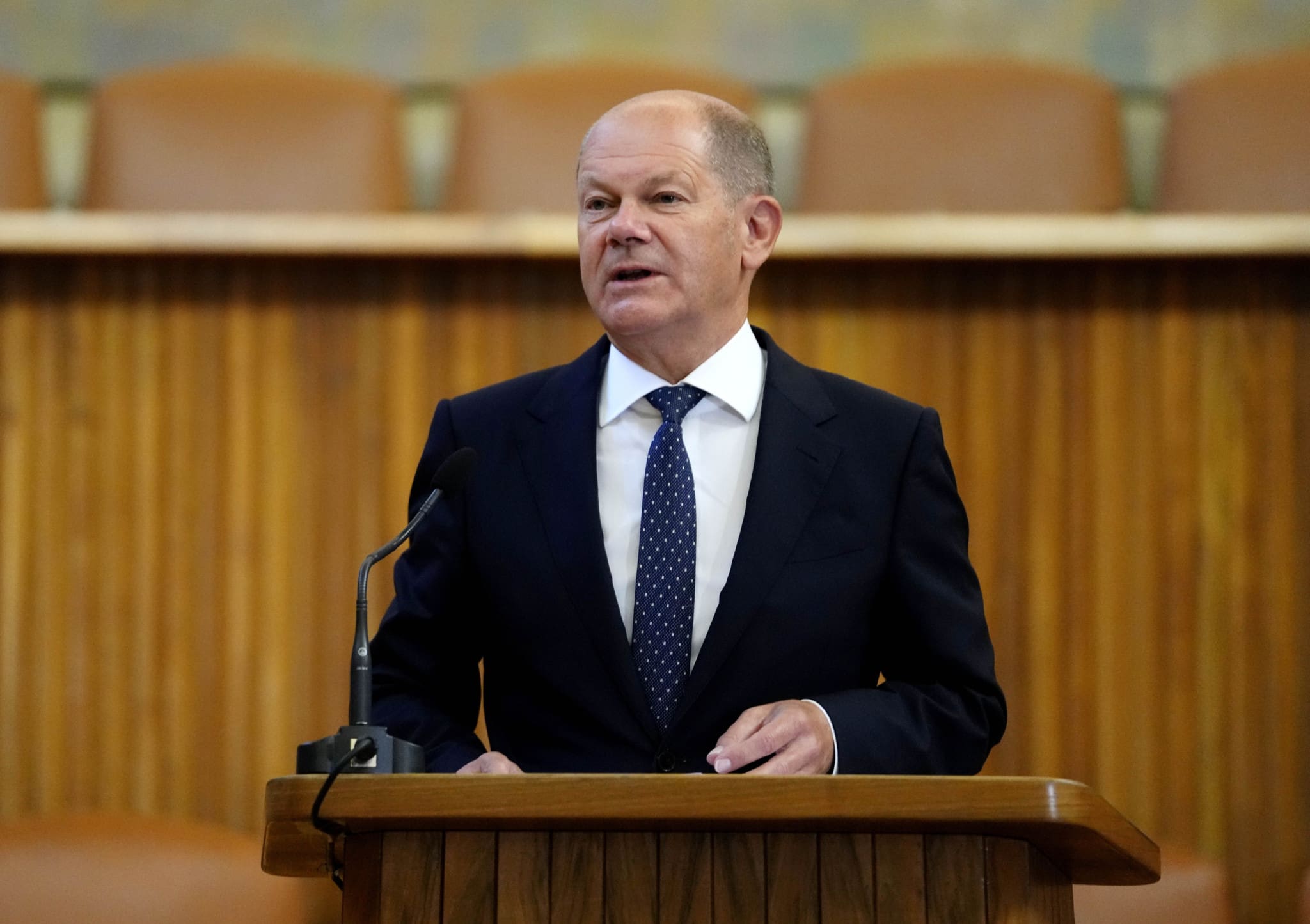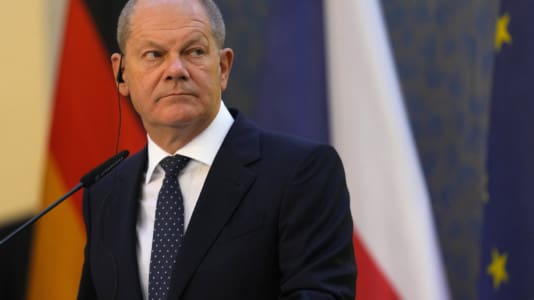Back in 2015 when the migrant crisis first began, there were just a few countries that stood against migrant quotas, with the Visegrád Four, made up of Hungary, Poland, Czechia, and Slovakia, the most vocally opposed. These countries were effective against a push for migrant quotas because of their ability to veto any such proposal, but that veto power is on the cusp of being lost.
It has long been the goal of the left-liberal establishment in Brussels to end unanimity in voting, which would allow the EU to undercut countries like Hungary and Poland, and implement a variety of long-term goals. In a speech at Prague’s Charles University on Monday, German Chancellor Olaf Scholz called for an end to this veto power and the introduction of majority voting.
The move is being welcomed by his party, the Social Democrats (SPD), with Saskia Esken, the co-chair of SPD, lauding Scholz’s speech on Twitter.
“Putin’s war against Ukraine means a turning point not only for Germany, but also for Europe and beyond. Olaf Scholz’s talk in Prague provided important impetus for how we can overcome the current crises and move Europe forward,” she wrote.
Scholz said in the speech that he favors abolishing the principle of unanimity on fundamental issues, as it is in the interest of the EU’s ability to act. But at the same time, he said that he seriously perceives the concerns of smaller countries that they may be outvoted.
For now, Scholz is proposing that the EU abolishes the veto in key areas before expanding it, with the focus on foreign policy and taxation, saying he seeks a “gradual transition to majority voting.” If such a scenario were to come into effect, Hungary would be forced to give up Russian oil and gas if the majority of EU member states called for an end to it, a move that would likely bankrupt its economy. On the issue of migration, migrant quotas would most likely be implemented across the EU. It would effectively mark the end to sovereignty in Europe, allowing the liberal-left to steam-roll every conservative party agenda for potentially decades to come.
Of course, a number of European conservative parties are coming out against the idea, with the anti-immigration German Alternative for Germany party (AfD) criticizing Scholz’s speech, according to Czech news outlet Echo24.
AfD’s Petr Bystroň, a German member of parliament of Czech origin who is also the chairman of the Slovak-Czech-Hungarian parliamentary group, said Scholz is trying to exploit the current crisis to further expand the Union’s powers at the expense of EU member states.
“Berlin’s primary effort is to abolish the veto right of individual EU member states and replace it with majority decisions. If the Czech government were to submit to this pressure, it would be signing a judgment on the loss of state sovereignty for the Czech Republic,” said Bystroň.
However, the AfD, which has been marginalized in Germany, has limited power to stop such a move. Key events like the upcoming election in Italy may tie the EU’s hands on the issue if a conservative bloc is victorious; however, the EU appears to be confident that sooner or later the veto will be abolished.
Polish commentators also mockingly pointed out that Germany could “lead the way” by already giving up its veto power.
“There is nothing to prevent the German government from unilaterally declaring that it is giving up its veto right in order to show others the way. Perhaps some other countries will follow suit and decide to take a similar step,” said Sławomir Dębski, the director of the Polish Institute of International Affairs (PISM).
Others pointed to Germany’s catastrophic position regarding Russia, which pursued gas deals and cooperation with Russia on key economic issues despite warnings from smaller member states such as Poland. In an EU run by Germany’s foreign policy diktats, Poland’s foreign policy would be at the mercy of other member states.
Scholz is not alone in his push to end the veto. French President Emmanuel Macron has long promoted an EU superstate, and in May, he called to build a “European political community” and ensure its completion “in a shorter time frame.”






